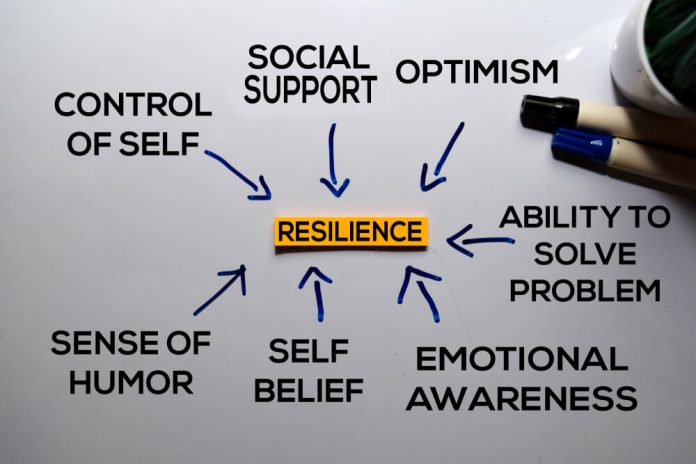
In an ever-evolving world, resilience is a key driver for turning challenges into opportunities for growth. Resilience goes beyond mere survival of setbacks; it’s about bending without breaking and then emerging stronger. As a crucial skill in our personal development toolkit and corporate training programs, resilience coaching empowers individuals to leverage adversity rather than avoid it.
Understanding Resilience in the Workplace
Resilience, often seen as the ability to quickly recover from difficulties, is a dynamic process of adapting, learning, and growing in response to change and challenges. When embraced, adversity can act as a catalyst for growth, transforming setbacks into learning experiences that improve problem solving and emotional intelligence. In the workplace, this translates into enhanced performance, satisfaction, and advancement, as resilient professionals excel in managing change and contributing to their organization.
Consider the example of a team leader facing a project failure. In this scenario, resilience is not just about bouncing back but also about using the experience as a springboard for growth. The leader could initiate a reflective session where the team openly discusses what went wrong and what could be done differently in the future. This approach not only fosters a culture of transparency and continuous learning but also helps the team to internalize resilience by seeing setbacks as opportunities for growth. This practical application of resilience theory in the workplace shows how understanding and adaptability lead to improved problem-solving skills and emotional intelligence, essential for professional growth and satisfaction.
Case Study: An Olympic Medalist’s Journey to Overcoming Public Speaking Anxiety
As a coach, I once had the opportunity to prepare an Olympic medalist for a TEDx talk. Contrary to my initial assumption that this would be a relatively easy task for an athlete accustomed to Olympic pressures, he quickly corrected me. Delivering a rehearsed talk in front of an audience was an entirely different arena from what he was accustomed to. This revelation shifted our coaching dynamic significantly.
Our coaching focused on developing new skills, such as effective storytelling and building confidence outside the familiar confines of sports. His dedication, akin to his athletic training, paid off at the TEDx talk, where he confidently shared his story and earned a standing ovation from the sold-out crowd. This experience underscores an essential lesson: Resilience is not confined to the domains we are trained in but extends to how we confront and excel in new challenges. The process also highlighted the power of specialized coaching in unlocking new avenues for growth.
Core Strategies for Resilience Coaching
Effective resilience coaching involves a variety of strategies tailored to individual needs. These strategies help individuals harness their innate strengths and develop new skills to navigate through challenges and elevate their potential.
- Emotional regulation and stress management: Central to resilience is the ability to manage emotions and stress. Coaching often involves teaching techniques such as mindfulness and cognitive reframing to help individuals remain composed and focused.
- Developing a growth mindset: A growth mindset, the belief in the ability to grow and improve through effort and perseverance, is fundamental to resilience. Coaching encourages embracing challenges, learning from feedback, and viewing failures as opportunities for growth.
- Enhancing communication skills: Effective communication is vital in expressing needs, building relationships, and resolving conflicts. Coaching in this area can range from active listening skills to assertive communication training.
By integrating these strategies into coaching sessions, individuals can develop a robust set of skills that enable them to face challenges with confidence and turn adversity around.
Dandelion Theory: Adaptability and Thriving in Adversity
The dandelion theory in psychology posits that some individuals, like dandelions, thrive in various environments, even under adversity. This concept is insightful for resilience coaching, emphasizing adaptability as a crucial trait. Just as dandelions grow in both fertile and challenging conditions, people can learn to remain resilient in various situations. In practical terms, this theory can guide the development of coaching strategies that emphasize flexibility, creativity, and resourcefulness.
A significant aspect of resilience coaching is fostering a “dandelion mindset.” This involves cultivating a belief in one’s ability to adapt and grow, even in the face of challenges, and viewing adversity as an opportunity for learning and development. Incorporating the dandelion theory into resilience coaching can offer a robust framework for helping individuals and teams navigate and thrive amidst challenges.
Integrating Resilience Coaching into Corporate Training Programs
Resilience coaching can be a transformative element in corporate training, enhancing both individual and team performance. Integrating these principles requires a strategic approach that aligns with the organization’s goals and culture.
- Customizing resilience training: Tailoring resilience coaching to meet the specific needs of employees and teams is crucial. This may involve assessing individual resilience levels and designing programs that address particular areas of development.
- Incorporating practical exercises: Practical exercises, such as role-playing scenarios and stress-management workshops, can be effective in teaching resilience skills. These activities allow individuals to practice and internalize resilience strategies in a controlled environment.
- Measuring impact and effectiveness: To ensure the success of resilience training, it’s important to have metrics in place to measure its impact. This might include employee feedback, performance reviews, and assessments of team dynamics.
By thoughtfully integrating resilience coaching into corporate training, organizations can foster a more adaptable, resilient workforce capable of navigating challenges and contributing to a positive and productive work environment.
A Robust Pathway
As we navigate an ever-changing world, resilience emerges as a dynamic and transformative skill, essential in both personal and professional realms. Incorporating resilience coaching offers a robust pathway for individuals and teams to thrive amidst challenges. It equips them with the skills to adapt, grow, and turn adversity into a catalyst for development and success.
Resilience is more than a trait—it’s a beacon that guides us through uncertainty, a lens that reframes obstacles as stepping stones, and a testament to the unassailable human spirit that seeks growth in every challenge.




